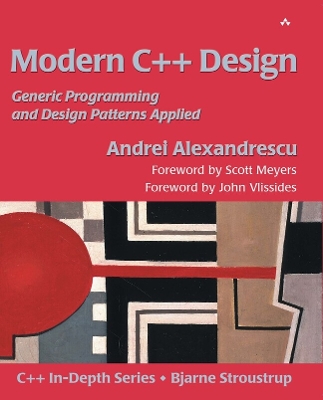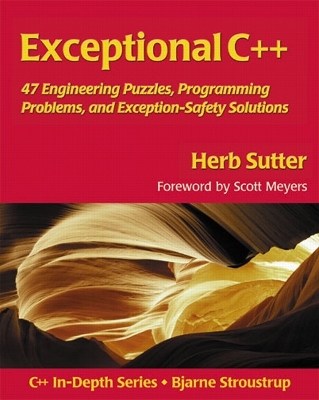C++ In-Depth
3 total works
Consistent, high-quality coding standards improve software quality, reduce time-to-market, promote teamwork, eliminate time wasted on inconsequential matters, and simplify maintenance. Now, two of the world's most respected C++ experts distill the rich collective experience of the global C++ community into a set of coding standards that every developer and development team can understand and use as a basis for their own coding standards.
The authors cover virtually every facet of C++ programming: design and coding style, functions, operators, class design, inheritance, construction/destruction, copying, assignment, namespaces, modules, templates, genericity, exceptions, STL containers and algorithms, and more. Each standard is described concisely, with practical examples. From type definition to error handling, this book presents C++ best practices, including some that have only recently been identified and standardized-techniques you may not know even if you've used C++ for years. Along the way, you'll find answers to questions like
What's worth standardizing--and what isn't? What are the best ways to code for scalability?What are the elements of a rational error handling policy? How (and why) do you avoid unnecessary initialization, cyclic, and definitional dependencies?When (and how) should you use static and dynamic polymorphism together?How do you practice "safe" overriding?When should you provide a no-fail swap? Why and how should you prevent exceptions from propagating across module boundaries?Why shouldn't you write namespace declarations or directives in a header file?Why should you use STL vector and string instead of arrays?How do you choose the right STL search or sort algorithm?What rules should you follow to ensure type-safe code?Whether you're working alone or with others, C++ Coding Standards will help you write cleaner code--and write it faster, with fewer hassles and less frustration.
In Modern C++ Design, Andrei Alexandrescu opens new vistas for C++ programmers. Displaying extraordinary creativity and programming virtuosity, Alexandrescu offers a cutting-edge approach to design that unites design patterns, generic programming, and C++, enabling programmers to achieve expressive, flexible, and highly reusable code.
This book introduces the concept of generic components—reusable design templates that produce boilerplate code for compiler consumption—all within C++. Generic components enable an easier and more seamless transition from design to application code, generate code that better expresses the original design intention, and support the reuse of design structures with minimal recoding.
The author describes the specific C++ techniques and features that are used in building generic components and goes on to implement industrial strength generic components for real-world applications. Recurring issues that C++ developers face in their day-to-day activity are discussed in depth and implemented in a generic way. These include:
- Policy-based design for flexibility
- Partial template specialization
- Typelists—powerful type manipulation structures
- Patterns such as Visitor, Singleton, Command, and Factories
- Multi-method engines
For each generic component, the book presents the fundamental problems and design options, and finally implements a generic solution.
0201615622B04062001
![Cover of C]+ Coding Standards](https://static.bookhype.com/assets/images/book-cover-dark.png)

